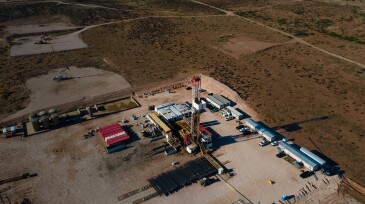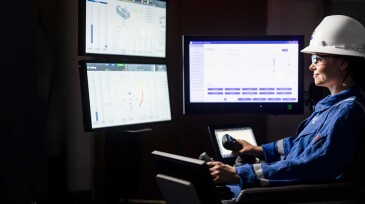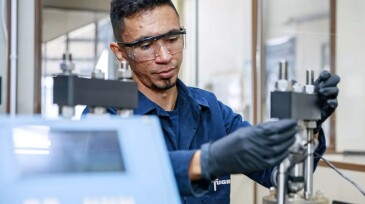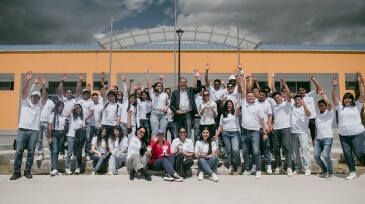Data & Analytics
Major increases in hydrocarbon production require both incremental and revolutionary technologies, industry leaders said during the SPE Hydraulic Fracturing Technology Conference.
This paper presents an automated workflow deployed for scheduling and validating steady-state production-well tests across more than 2,300 wells in the Permian Basin.
This paper presents a multifaceted approach leveraging precise rig control, physics models, and machine-learning techniques to deliver consistently high performance in a scalable manner for sliding.
-
This article is the third in a Q&A series from the SPE Research and Development Technical Section focusing on emerging energy technologies. In this piece, Zikri Bayraktar, a senior machine learning engineer with SLB’s Software Technology and Innovation Center, discusses the expanding use of artificial intelligence in the upstream sector.
-
The SPE Reservoir Technical Discipline and Advisory Committee invite their Reservoir members worldwide to participate in a new survey aimed at assessing the current state of reservoir engineering across industry and academia. Deadline is 21 July 2025.
-
The agreement focuses on improving operational efficiency and consistency through advanced digital tools and real-time data integration.
-
TotalEnergies and the French company Mistral AI are joining forces to extend the use of AI in improving TotalEnergies’ performance, especially in low-carbon energies. The partners plan to set up a joint innovation lab focused on artificial intelligence.
-
Operators that demand control of their future position in global energy production are forging ahead into new territory by digitally transforming their operations at a time that still feels relatively comfortable. They’ve recognized that, while traditional approaches served the industry well for many decades, the chance to reimagine how they do things is not something…
-
Secondary and tertiary efforts are critical for sustaining the productive lives of unconventional plays.
-
The new lab expands the company's capabilities in the region by 20% by adding more than 30 testing stations.
-
Foundation models are rapidly emerging as a transformative force across industries. While their effect on natural language processing and computer vision is well-documented, their potential in specialized engineering domains, particularly within the critical oil, gas, and broader energy sectors, is vast and increasingly recognized. This article explores how these powe…
-
Buoy-based camera footage, analyzed by artificial intelligence, can help reduce the risk of birds colliding with offshore wind farm turbines.
-
The SPE Ecuador Section brought the excitement of robotics and energy education to life through an intensive 1-day Energy4me training, reaching 1,324 children from rural Quito.













